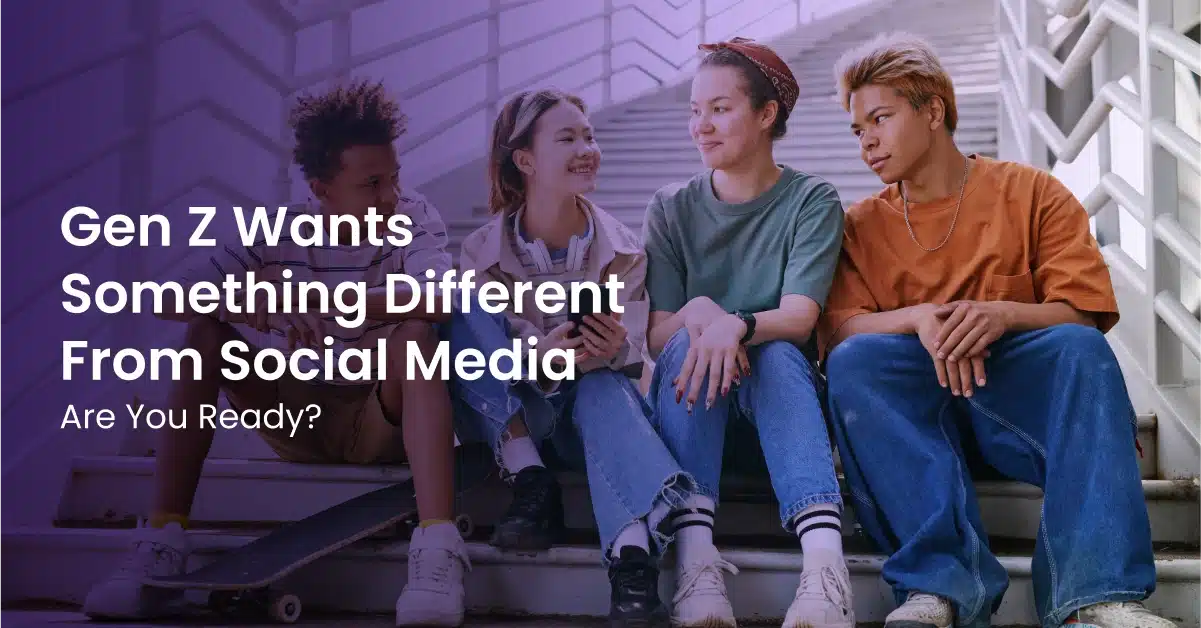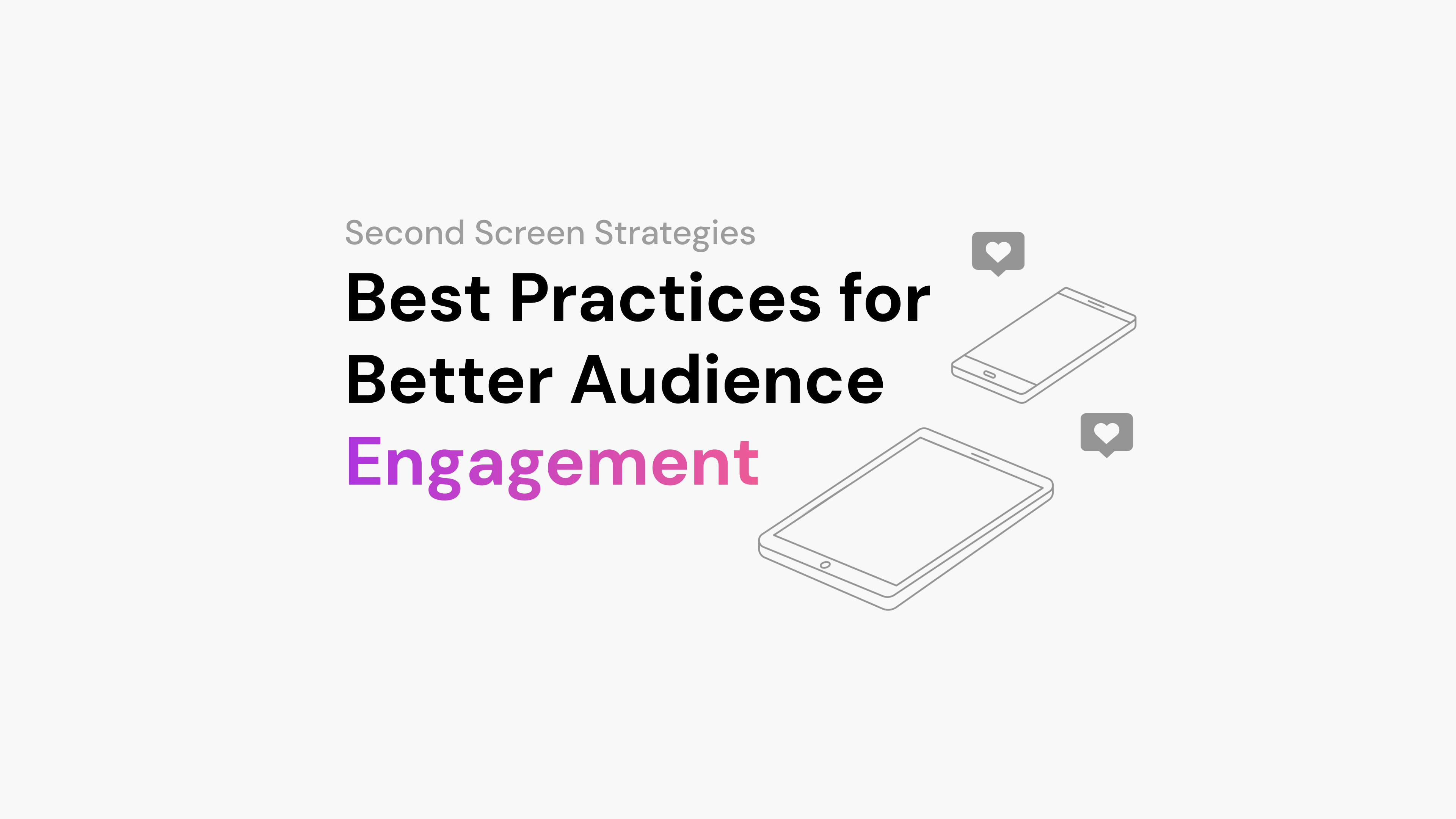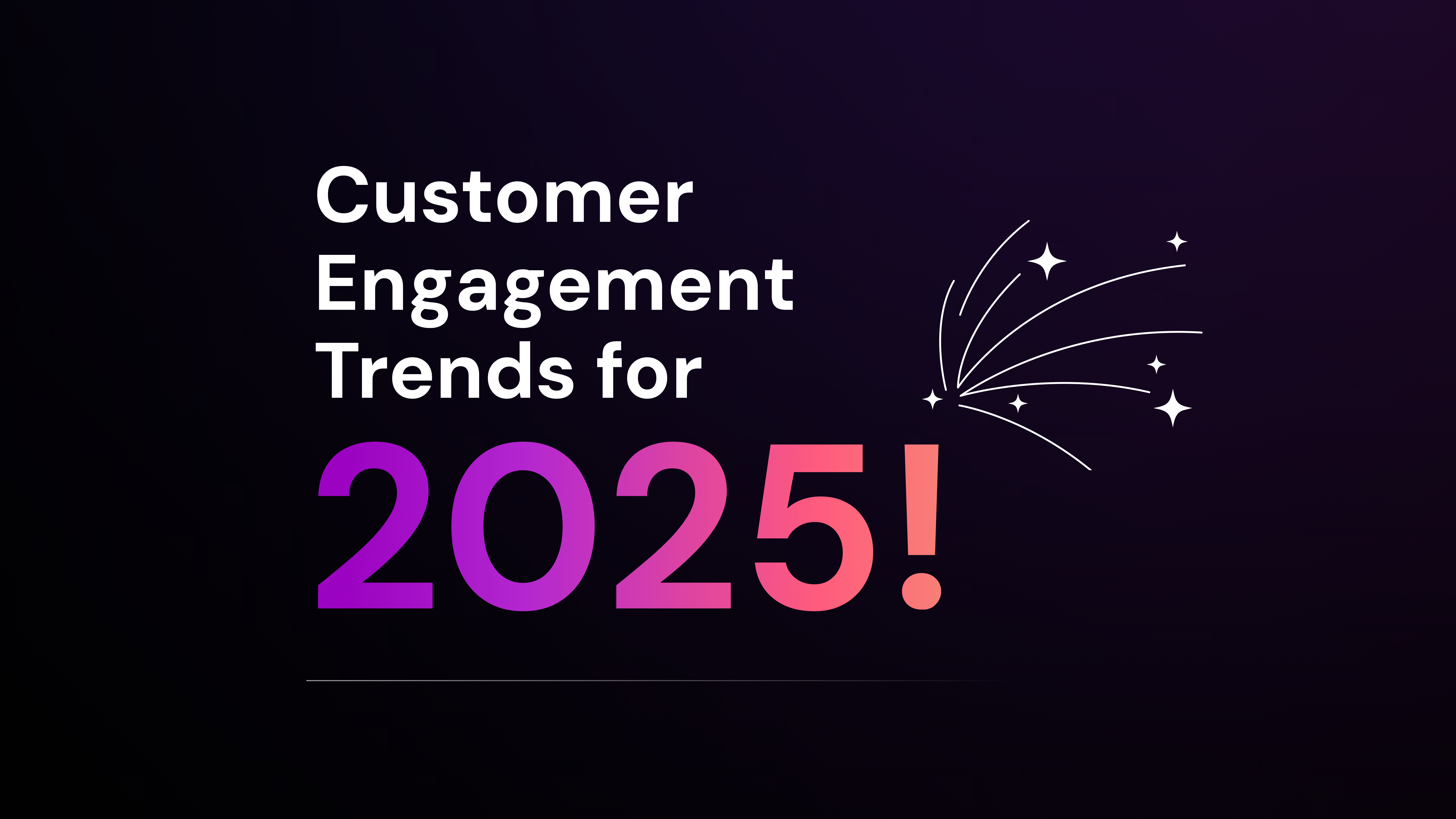Gen Z’s passion for social media is well documented, so much so they’re often referred to as “Social Natives,” but a recent development is challenging our understanding of this generation.
Gen Z (born 1997 to 2012) is increasingly moving away from traditional feed-based social media platforms like Facebook and Twitter. According to Impero research, 65% of Gen Z users feel more confident using community-focused social media apps like Twitch and Discord. This shift in focus is a return to the pre-social media Internet communities like bulletin boards.
What We Know About Gen Z’s Online Habits

To put the shift in Gen Z online behavior into context, it’s helpful to look at a few numbers.
- Facebook: 49% of Gen Z use Facebook according to a 2022 survey, making it the 4th most popular social platform. In contrast, 69% of Millennials prefer Facebook over other social media platforms.
- Twitter. 47% of Gen Z say they use the micro-blogging platform in 2022. Once again, Millennials are a larger share of the Twitter user base. One estimate pegged Millennials at 80% of Twitter (source).
- Discord. While much smaller in absolute terms, Discord has attracted significant Gen Z engagement. Insider Intelligence estimates that 35% of all Gen Z are on Discord. Gen Z is an influential audience for a platform with approximately 140 million monthly active users in 2021.
Of course, there are exceptions to this pattern, like TikTok, which has a similar feed-based experience. Nonetheless, the increasing popularity of smaller online communities tells us something important about the evolution of Gen Z in the digital age.
The Problem With Big Platform Feeds

Imperso’s research Gen Z’s top concerns in the online world includes seeing themselves as unique, a sense of community, voice, and privacy considerations. The Pew Research Center also points out that “Gen Zers are progressive and pro-government, most see the country’s growing racial and ethnic diversity as a good thing.”
Large social media platforms like Facebook, Instagram, and Twitter are not well-positioned to meet Gen Z expectations.
Gen Z’s concerns over the big social platforms are unlikely to be fully satisfied soon. Take privacy as an example. Facebook’s history of privacy scandals is well documented, of large fines, legal problems, and more. Under Elon Musk’s leadership, Twitter has reduced its safeguards that discouraged misinformation, a move that alarmed many and caused advertising spend to plunge 89% since before his takeover in October.
Curated Communities Are Winning
Discord offers an interesting case study showing how to create more focused communities. While Twitter primarily operates as a fully public platform, Discord offers more curated experiences. To understand Discord’s appeal, briefly covering a few critical details about the platform is helpful.
Established in 2015, Discord first rose to prominence in gamer communities. The text and audio-based platform offered an easy way for gaming enthusiasts to gather and enjoy games together. Each Discord server comprises multiple channels, some open to all (e.g., general chat) while others are restricted (e.g., announcements or rules).
While video game-related interests remain the most popular on Discord, the platform is evolving. There are Discord servers for book enthusiasts, education (e.g., communities focused on learning a language and science), cars, and sports.
In contrast to other platforms, Discord servers have a few points in common. They are focused on a specific topic. These communities also offer the kinds of social functions that Gen Z has come to expect, like social reactions, private messaging, friend requests, emojis, and more.
In contrast to Facebook, Twitter, Instagram, and other larger platforms, Discord does not have advertising in the traditional sense. The lack of powerful advertising tools may discourage some brands from pursuing platforms like Discord, but building a focused online community revolving around your online brand is worth the effort, even if that specific platform is not for you.
Why Relying On Social Media Platforms To Engage Gen Z Is Risky
Maintaining an active presence on social media platforms is still essential. Gen Z is still very active on TikTok, YouTube, and Instagram. At the same time, those platforms are noisy, with many different kinds of content. It can be tough to build an engaged community when there are so many distractions one click away.
Putting all your community-building efforts into social media also comes at a significant cost. It means you are depending on another company to access your community. They can change the rules (and pricing) suddenly. Apart from that concern, you’re very limited in how much data you can gather. Building your online community on your website is vital, with third-party cookies set to disappear soon.
3 Ways To Make Your Website More Engaging For Gen Z
Attracting and keeping Gen Z audiences engaged on your website is easier when you use the following best practices.
Mobile Optimized
Smartphone ownership and use in Gen Z is very high. Approximately 85% of the US population owns a smartphone, while 98% of Gen Z has a smartphone. Therefore, your website must look great and respond fast to mobile devices. Gen Z also loves video content – as shown by their heavy use of TikTok – so make sure your videos look great on mobile.
Social Media Style Functionality
Gen Z will not spend all their time browsing product pages or other forms of static content. They expect to have a social experience. Fortunately, Arena Live Chat offers an easy way to offer this experience on any digital platform you manage.
Brand-safe Community Experiences
Deloitte research found that diversity is crucial to Gen Z. Also, Deloitte found that Gen Z judges companies based on their “ethics, practices and social impact” along with the quality of their products. Running your online community in a socially responsible manner is one way to show you understand Gen Z needs.
Offering a brand-safe experience through moderation is also important given the age of Gen Z. Many in Gen Z are not yet adults, so a reasonable level of moderation is essential.
Grow Your Online Community For Gen Z
Gen Z is the future. Discover how Arena can help you build an online community on your website.
How Gen Z Engages with Social Media
Gen Z craves real-time interaction and short-form content. They trust influencers and peers more than traditional advertising. Platforms offering live chat and streaming capture their attention.
How to Adapt Social Media Strategies for Gen Z
Create Authentic Content
Gen Z values authenticity. Share real stories and user-generated content to make them feel like insiders.
Leverage Video Content
Video reigns supreme. Use short clips to engage Gen Z effectively. Arena’s AI-enhanced content can help create resonant videos.
Foster Community Interaction
Encourage engagement through comments and shares. Arena’s real-time chat builds community and belonging.
Grow Your Online Community For Gen Z
Gen Z is the future, so it’s time to prepare for them. Find out how Arena can help you build an online community on your website.



